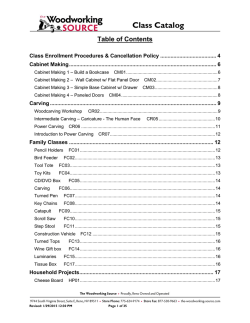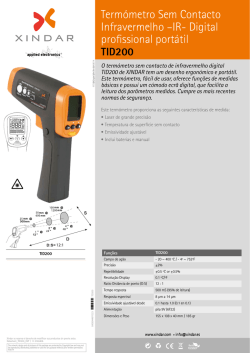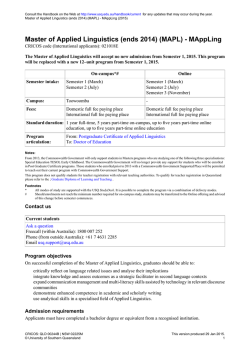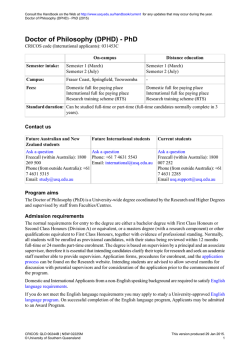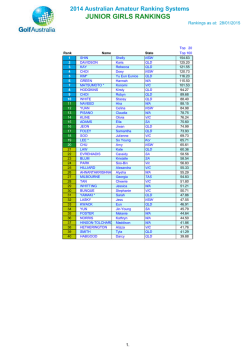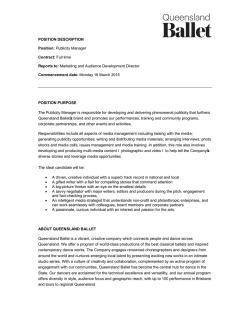
Juris Doctor (DJUR) - JD - University of Southern Queensland
Consult the Handbook on the Web at http://www.usq.edu.au/handbook/current for any updates that may occur during the year. Juris Doctor (DJUR) - JD (2015) Juris Doctor (DJUR) - JD Distance education Semester intake: Semester 1 (March) Semester 2 (July) Fees: Domestic full fee paying place International full fee paying place Standard duration: 3 years full-time, up to 6 years part-time Program articulation: To: Master of Laws (Research) Contact us Future Australian and New Zealand students Future International students Ask a question Ask a question Freecall (within Australia): 1800 Phone: +61 7 4631 5543 269 500 Email: [email protected] Phone (from outside Australia): +61 7 4631 5315 Email: [email protected] Current students Ask a question Freecall (within Australia): 1800 007 252 Phone (from outside Australia): +61 7 4631 2285 Email [email protected] Professional accreditation The Juris Doctor has been accredited by the Legal Practitioners Admissions Board, Queensland, and the Chief Justice of the Supreme Court of Queensland as an approved academic qualification under the Supreme Court (Admission) Rules 2004 (Qld). This will partially satisfy the requirements to practise as a solicitor or barrister in Queensland, or as a lawyer elsewhere in Australia. Intending solicitors and barristers must also complete an approved practical legal training course in order to become admitted to practise law. USQ does not offer practical legal training, but advice on practical legal training programs can be obtained through Ask USQ. Program aims The Juris Doctor is a graduate entry program (for non-law graduates) that provides students with the opportunity for a comprehensive study of law, not only to prepare for practice as a solicitor or barrister in Queensland but also to examine the legal process and its social, political and economic context. The program aims to equip students with an academic qualification for professional practice. While this is a focused program preparing students for professional practice with particular skills in applied legal research, it also builds the special capabilities that a legal education can offer, such as complex problem-solving and policy analysis. Program objectives Upon completion of the Juris Doctor students will be able to: ● demonstrate an advanced and integrated understanding of a coherent body of knowledge that includes the fundamental areas of law, the Australian legal system, and underlying principles and concepts (including international and comparative contexts), the broader contexts within which legal issues arise, the principles and values of justice and of ethical practice in lawyers’ roles, and contemporary developments in law and its professional practice CRICOS: QLD 00244B | NSW 02225M © University of Southern Queensland This version produced 29 Jan 2015. 1 Consult the Handbook on the Web at http://www.usq.edu.au/handbook/current for any updates that may occur during the year. Juris Doctor (DJUR) - JD (2015) ● ● ● ● ● ● ● ● demonstrate an advanced and integrated understanding of approaches to ethical decision making, an ability to recognise and reflect upon, and a developing ability to respond to, ethical issues likely to arise in professional contexts demonstrate an ability to recognise and reflect upon the professional responsibilities of lawyers in promoting justice and in service to the community; and a developing ability to exercise professional judgment identify and articulate complex legal issues; and apply legal reasoning and research to generate appropriate jurisprudential and practical responses to legal issues engage in critical analysis and make reasoned and appropriate choices amongst alternatives demonstrate sophisticated cognitive and creative skills in approaching legal issues and generating appropriate responses demonstrate the intellectual and practical skills needed to justify and interpret theoretical propositions, legal methodologies, conclusions and professional decisions, as well as to identify, research, evaluate and synthesise relevant factual, legal and policy issues communicate in ways that are effective, appropriate and persuasive for legal and non-legal audiences; and collaborate effectively work with a high level of autonomy, accountability and professionalism; reflect on and assess their own capabilities and performance; and make use of feedback, as appropriate, to support personal and professional development. Admission requirements Applicants to the Juris Doctor program are required to have graduated with a three-year undergraduate degree or equivalent in an area other than law from a recognised institution. Domestic and International Applicants from a non-English speaking background are required to satisfy English language requirements. If you do not meet the English language requirements you may apply to study a University-approved English language program. On successful completion of the English language program, Applicants may be admitted to an Award Program. Program fees Domestic full fee paying place Domestic full fee paying places are funded entirely through the full fees paid by the student. Full fees vary depending on the courses that are taken. You are able to calculate the fees for a particular course via the Course Fee Finder. Domestic full fee paying students may be eligible to defer their fees through a Government loan called FEEHELP provided they meet the residency and citizenship requirements. Australian citizens, Permanent Humanitarian Visa holders, Permanent Resident visa holders and New Zealand citizens who will be resident outside Australia for the duration of their program pay full tuition fees and are not eligible for FEE-Help. International full fee paying place International students pay full fees. Full fees vary depending on the courses that are taken and whether they are studied on-campus, via distance education/online. You are able to calculate the fees for a particular course via the Course Fee Finder. Program structure The graduate entry program is 24 units in total. It has two prime components: a core (21 units) and law electives (3 units). Required time limits Students have a maximum of 9 years to complete this program. CRICOS: QLD 00244B | NSW 02225M © University of Southern Queensland This version produced 29 Jan 2015. 2 Consult the Handbook on the Web at http://www.usq.edu.au/handbook/current for any updates that may occur during the year. Juris Doctor (DJUR) - JD (2015) Core courses . Course Semester of offer Distance/Online LAW5111 Advanced Australian Legal System 1, 2 Semester of offer Toowoomba campus LAW5112 Advanced Legal Writing 1, 2 and Research LAW5113 Advanced Civil 1 Obligations A (Contract and Torts) LAW5114 Advanced Law in Context 1 LAW5121 Advanced Criminal Law 2 LAW5122 Advanced Legal Conflict 2, 3 Resolution LAW5123 Advanced Civil Obligations B (Contract) 2 LAW5124 Advanced Civil Obligations C (Torts) 2, 3 LAW5211 Advanced Constitutional 1, 3 Law LAW5212 Advanced Equity 1 LAW5213 Advanced Property and 1 Trusts A LAW5221 Advanced Administrative Law 2 LAW5222 Advanced Public International and Human Rights Law 2 LAW5223 Advanced Property and 2 Trusts B LAW5224 Advanced Theories of Law 2 LAW5311 Advanced Company Law 1 LAW5312 Advanced Ethics for Lawyers 1, 3 LAW5321 Advanced Evidence 2 LAW5322 Advanced Civil Procedure 2 LAW8001 Legal Research Methodology 1, 2 LAW5323 Advanced Research Project* 1, 2 CRICOS: QLD 00244B | NSW 02225M © University of Southern Queensland 1, 2 This version produced 29 Jan 2015. 3 Consult the Handbook on the Web at http://www.usq.edu.au/handbook/current for any updates that may occur during the year. Juris Doctor (DJUR) - JD (2015) Footnotes * Students should have completed 16 core Law courses before enrolling in LAW5323. It is also highly recommended that this course be the last course to complete in the program. Elective courses Choose three of the following Law electives. Some courses are offered biennially. All other courses are offered annually. Course Semester of offer Distance/Online ECO3033 Law and Economics† 3 ENL3007 Law and Literature 1 Semester of offer Toowoomba campus 1 LAW2107 Environmental 2 Law LAW2301 e-Law Semester of offer Springfield campus 2 1 LAW3110 Insolvency and 2 Restructuring Law LAW3130 Revenue Law 1, 2, 3 and Practice 1 1 LAW3131 Revenue Law 2 and Practice II LAW3404 Banking, Finance and Insurance Law† 1 LAW3405 Human Rights 1 and Anti-Discrimination Law† LAW3406 Intellectual Property Law† 3 LAW3421 Family Law 2 LAW3422 Succession Law† 1 LAW3424 Land Contracts 2 LAW3441 Natural Resources Law† 2 LAW3442 Workplace Law§ 2 LAW3444 Competition and Consumer Law† 2 LAW3463 Private International Law† 2 LAW3465 Comparative Law§ 1 LAW3466 Moot Court Bench 1 LAW3467 Health Law 2 CRICOS: QLD 00244B | NSW 02225M © University of Southern Queensland 2 2 1 1 2 This version produced 29 Jan 2015. 4 Consult the Handbook on the Web at http://www.usq.edu.au/handbook/current for any updates that may occur during the year. Juris Doctor (DJUR) - JD (2015) LAW3468 Regional and Rural Legal Practice§ 2 LAW3469 Australian Criminal Codes 1 LAW3470 Principles of Public Law§ 2 2 2 LAW3471 Criminology# 1 WIL3000 Work Integrated 2, 3 Learning - Law^ 2, 3 2, 3 LAW8701 Constitutional 1 Human Rights* 1 1 LAW8703 Comparative Employment Law 2 LAW8704 Corporate Governance Law 1 1 LAW8705 Cross-Border 2 Litigation 2 LAW8706 International Humanitarian Law* 2 2 LAW8707 International Economic Law 2 2 LAW8708 Law of International Trade and Transport 1 LAW8709 Comparative Native Title Law and Policy 1 1 LAW8711 Law of Capital 2 Markets 2 LAW8712 Comparative Constitutional Law 2 2 2 2 Footnotes † This course is offered in even-numbered years. § This course is offered in odd-numbered years. # This course will not be offered in 2015. ^ A student must have completed 12 units before enrolling in WIL3000. * This course will not be offered in 2015. IT requirements For information technology requirements please refer to the minimum computing standards. Other program requirements Students must maintain good standing in this program. Please refer to the Academic Standing, Progression and Exclusion Procedure. Credit Maximum credit CRICOS: QLD 00244B | NSW 02225M © University of Southern Queensland This version produced 29 Jan 2015. 5 Consult the Handbook on the Web at http://www.usq.edu.au/handbook/current for any updates that may occur during the year. Juris Doctor (DJUR) - JD (2015) Credit from USQ courses credited to the Juris Doctor may be granted for a maximum of 50% of the program, that is, 12 courses. Maximum credit for completed undergraduate courses Credit from USQ courses creditable to the Juris Doctor may be granted for successful completion of undergraduate courses on condition that: (1) any other requirements for the granting of credit in these guidelines are met (2) if the student had been previously enrolled in a combined program with law at USQ or another university, and law courses were credited to the other award, credit is only granted so that, on completion of the Juris Doctor at USQ, the student will have successfully completed the equivalent of at least 6 years of full-time study (3) subject to paragraph 2, the maximum proportion of undergraduate courses that are taken or credited towards the Juris Doctor is 50% of the program, that is, the equivalent of 12 courses. Admission courses Credit may be granted from a core course that deals with an area of knowledge that is set out in Attachment 1 of the Supreme Court (Admission) Rules 2004 (Qld) if: (1) the course that was successfully completed at another university deals in substance with the topics that are set out in that area of knowledge (2) the course was undertaken in a program that is an approved academic qualification for the purposes of admission as a lawyer in any Australian state or territory. Credit from a course in the Juris Doctor will only be granted if: (1) the workload for the course that was successfully completed at another university is at least 70% of the workload required for the course from which a credit is being granted (2) at least 70% of the content of the course that was successfully completed at the other university is similar to the content of the course from which a credit is being granted. Credit may be permitted for a limited number of courses, equivalent in content and level, successfully completed recently with a recognised institution, in accordance with USQ policy. Recommended enrolment patterns Students are able to enrol in any offered mode of a course (on-campus, distance education or online), regardless of the program mode of study they enrolled in. The flexibility of this program, particularly for the distance learning students means there will be a range of enrolment patterns, and many distance learning students will have a unique enrolment pattern. Students requiring assistance should contact the Faculty of Business, Education, Law and Arts. Recommended enrolment pattern - standard semester 1 intake Students are able to enrol in any offered mode of a course (on-campus, distance education or online), regardless of the program mode of study they enrolled in. Course Year of program and semester in which course is normally studied On-campus External Online (ONC) (EXT) (ONL) Year Sem Year Sem Year Sem LAW5111 Advanced Australian Legal System 1 1 LAW5112 Advanced Legal Writing and Research 1 1 CRICOS: QLD 00244B | NSW 02225M © University of Southern Queensland Enrolment requirements Pre-requisite: Students must be enrolled in Program DJUR or Early Career Plan (16650) of Program PCBS Pre-requisite or Co-requisite: LAW5111 or Students must be enrolled in the following program: DJUR This version produced 29 Jan 2015. 6 Consult the Handbook on the Web at http://www.usq.edu.au/handbook/current for any updates that may occur during the year. Juris Doctor (DJUR) - JD (2015) Course Year of program and semester in which course is normally studied On-campus External Online (ONC) (EXT) (ONL) Year Sem Year Sem Year Sem LAW5113 Advanced Civil Obligations A (Contract and Torts) LAW5114 Advanced Law in Context 1 1 1 1 LAW5121 Advanced Criminal Law 1 2 LAW5122 Advanced Legal Conflict Resolution 1 2 LAW5123 Advanced Civil Obligations B (Contract) 1 2 LAW5124 Advanced Civil Obligations C (Torts) 1 2 LAW5211 Advanced Constitutional Law 2 1 LAW5212 Advanced Equity 2 1 LAW5213 Advanced Property and Trusts A 2 1 Law elective 1 LAW5221 Advanced Administrative Law 2 2 1 2 LAW5222 Advanced Public International and Human Rights Law LAW5223 Advanced Property and Trusts B 2 2 2 2 LAW5224 Advanced Theories of Law LAW5311 Advanced Company Law LAW5312 Advanced Ethics for Lawyers 2 3 3 2 1 1 LAW8001 Legal Research Methodology Law elective 2 LAW5321 Advanced Evidence 3 3 3 1 1 2 LAW5322 Advanced Civil Procedure 3 2 LAW5323 Advanced Research Project* 3 2 Law elective 3 3 2 Enrolment requirements Pre-requisite or Co-requisite: (LAW5111 and LAW5112) or LAW5501 Pre-requisite or Co-requisite: (LAW5111 and LAW5112) or LAW5501 Pre-requisite or Co-requisite: (LAW5111 and LAW5112) or LAW5501 Pre-requisite or Co-requisite: (LAW5111 and LAW5112) or LAW5501 Pre-requisite: LAW5113 or (LAW5601 and LAW5603) Pre-requisite: LAW5113 or (LAW5601 and LAW5603) Pre-requisite: (LAW5111 and LAW5112) or LAW5501 Pre-requisite: (LAW5111 and LAW5112) or LAW5501 Pre-requisite: (LAW5111 and LAW5112) or LAW5501 Pre-requisite: (LAW5111 and LAW5112) or LAW5501 Pre-requisite: (LAW5111 and LAW5112) or LAW5501 Pre-requisite: (LAW5212 and LAW5213) or (LAW5705 and LAW5703) Pre-requisite: LAW5114 or LAW5502 Pre-requisite: LAW5212 or LAW5705 Pre-requisite: LAW5121 or (LAW5605 and LAW5606) Pre-requisite: LAW5121 or (LAW5605 and LAW5606) Pre-requisite: LAW5123 or (LAW5601 and LAW5602) Pre-requisite: LAW8001 (only for students commencing in 2014) Footnotes * Students should have completed 16 core Law courses before enrolling in LAW5323. It is also highly recommended that this course be the last course to complete in the program. Recommended enrolment pattern - standard semester 2 intake Students are able to enrol in any offered mode of a course (on-campus, distance education or online), regardless of the program mode of study they enrolled in. Course LAW5111 Advanced Australian Legal System CRICOS: QLD 00244B | NSW 02225M © University of Southern Queensland Year of program and semester in which course is normally studied On-campus External Online (ONC) (EXT) (ONL) Year Sem Year Sem Year Sem 1 2 Enrolment requirements Pre-requisite: Students must be enrolled in Program DJUR or Early Career Plan (16650) of Program PCBS This version produced 29 Jan 2015. 7 Consult the Handbook on the Web at http://www.usq.edu.au/handbook/current for any updates that may occur during the year. Juris Doctor (DJUR) - JD (2015) Course Year of program and semester in which course is normally studied On-campus External Online (ONC) (EXT) (ONL) Year Sem Year Sem Year Sem LAW5112 Advanced Legal Writing and Research 1 2 LAW5121 Advanced Criminal Law 1 2 LAW5122 Advanced Legal Conflict Resolution 1 2 LAW5113 Advanced Civil Obligations A (Contract and Torts) LAW5114 Advanced Law in Context 2 1 2 1 LAW5211 Advanced Constitutional Law 2 1 LAW5212 Advanced Equity 2 1 LAW5123 Advanced Civil Obligations B (Contract) 2 2 LAW5124 Advanced Civil Obligations C (Torts) 2 2 LAW5221 Advanced Administrative Law 2 2 LAW5222 Advanced Public International and Human Rights Law LAW5213 Advanced Property and Trusts A 2 2 3 1 Law elective 1 LAW5311 Advanced Company Law LAW5312 Advanced Ethics for Lawyers 3 3 3 1 1 1 LAW5223 Advanced Property and Trusts B 3 2 LAW5224 Advanced Theories of Law LAW5321 Advanced Evidence 3 3 2 2 LAW5322 Advanced Civil Procedure 3 2 LAW8001 Legal Research Methodology LAW5323 Advanced Research Project* 4 4 1 1 Law elective 2 Law elective 3 4 4 1 1 Enrolment requirements Pre-requisite or Co-requisite: LAW5111 or Students must be enrolled in the following program: DJUR Pre-requisite or Co-requisite: (LAW5111 and LAW5112) or LAW5501 Pre-requisite or Co-requisite: (LAW5111 and LAW5112) or LAW5501 Pre-requisite or Co-requisite: (LAW5111 and LAW5112) or LAW5501 Pre-requisite or Co-requisite: (LAW5111 and LAW5112) or LAW5501 Pre-requisite: (LAW5111 and LAW5112) or LAW5501 Pre-requisite: (LAW5111 and LAW5112) or LAW5501 Pre-requisite: LAW5113 or (LAW5601 and LAW5603) Pre-requisite: LAW5113 or (LAW5601 and LAW5603) Pre-requisite: (LAW5111 and LAW5112) or LAW5501 Pre-requisite: (LAW5111 and LAW5112) or LAW5501 Pre-requisite: (LAW5111 and LAW5112) or LAW5501 Pre-requisite: LAW5212 or LAW5705 Pre-requisite: LAW5121 or (LAW5605 and LAW5606) Pre-requisite: (LAW5212 and LAW5213) or (LAW5705 and LAW5703) Pre-requisite: LAW5114 or LAW5502 Pre-requisite: LAW5121 or (LAW5605 and LAW5606) Pre-requisite: LAW5123 or (LAW5601 and LAW5602) Pre-requisite: LAW8001 (only for students commencing in 2014) Footnotes * Students should have completed 16 core Law courses before enrolling in LAW5323. It is also highly recommended that this course be the last course to complete in the program. CRICOS: QLD 00244B | NSW 02225M © University of Southern Queensland This version produced 29 Jan 2015. 8 Consult the Handbook on the Web at http://www.usq.edu.au/handbook/current for any updates that may occur during the year. Juris Doctor (DJUR) - JD (2015) Recommended enrolment pattern - 3 courses per semester Students are able to enrol in any offered mode of a course (on-campus, distance education or online), regardless of the program mode of study they enrolled in. Course Year of program and semester in which course is normally studied On-campus External Online (ONC) (EXT) (ONL) Year Sem Year Sem Year Sem LAW5111 Advanced Australian Legal System 1 1 LAW5112 Advanced Legal Writing and Research 1 1 LAW5113 Advanced Civil Obligations A (Contract and Torts) LAW5121 Advanced Criminal Law 1 1 1 2 LAW5123 Advanced Civil Obligations B (Contract) 1 2 LAW5124 Advanced Civil Obligations C (Torts) 1 2 LAW5114 Advanced Law in Context 2 1 LAW5211 Advanced Constitutional Law 2 1 LAW5212 Advanced Equity 2 1 LAW5122 Advanced Legal Conflict Resolution 2 2 LAW5221 Advanced Administrative Law 2 2 LAW5222 Advanced Public International and Human Rights Law LAW5213 Advanced Property and Trusts A 2 2 3 1 Law elective LAW5311 Advanced Company Law LAW5223 Advanced Property and Trusts B 3 3 3 1 1 2 LAW5224 Advanced Theories of Law Law elective LAW5312 Advanced Ethics for Lawyers 3 3 4 2 2 1 LAW8001 Legal Research Methodology Law elective LAW5321 Advanced Evidence 4 4 4 1 1 2 LAW5322 Advanced Civil Procedure 4 2 LAW5323 Advanced Research Project* 4 2 Enrolment requirements Pre-requisite: Students must be enrolled in Program DJUR or Early Career Plan (16650) of Program PCBS Pre-requisite or Co-requisite: LAW5111 or Students must be enrolled in the following program: DJUR Pre-requisite or Co-requisite: (LAW5111 and LAW5112) or LAW5501 Pre-requisite or Co-requisite: (LAW5111 and LAW5112) or LAW5501 Pre-requisite: LAW5113 or (LAW5601 and LAW5603) Pre-requisite: LAW5113 or (LAW5601 and LAW5603) Pre-requisite or Co-requisite: (LAW5111 and LAW5112) or LAW5501 Pre-requisite: (LAW5111 and LAW5112) or LAW5501 Pre-requisite: (LAW5111 and LAW5112) or LAW5501 Pre-requisite or Co-requisite: (LAW5111 and LAW5112) or LAW5501 Pre-requisite: (LAW5111 and LAW5112) or LAW5501 Pre-requisite: (LAW5111 and LAW5112) or LAW5501 Pre-requisite: (LAW5111 and LAW5112) or LAW5501 Pre-requisite: LAW5212 or LAW5705 Pre-requisite: (LAW5212 and LAW5213) or (LAW5705 and LAW5703) Pre-requisite: LAW5114 or LAW5502 Pre-requisite: LAW5121 or (LAW5605 and LAW5606) Pre-requisite: LAW5121 or (LAW5605 and LAW5606) Pre-requisite: LAW5123 or (LAW5601 and LAW5602) Pre-requisite: LAW8001 (only for students commencing in 2014) Footnotes * Students should have completed 16 core Law courses before enrolling in LAW5323. It is also highly recommended that this course be the last course to complete in the program. CRICOS: QLD 00244B | NSW 02225M © University of Southern Queensland This version produced 29 Jan 2015. 9
© Copyright 2026

